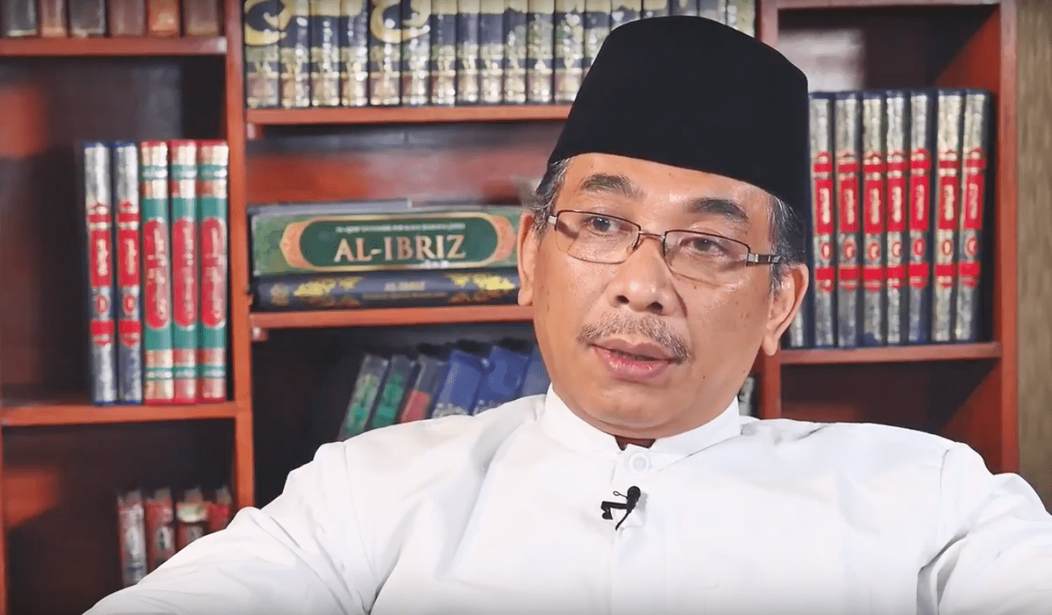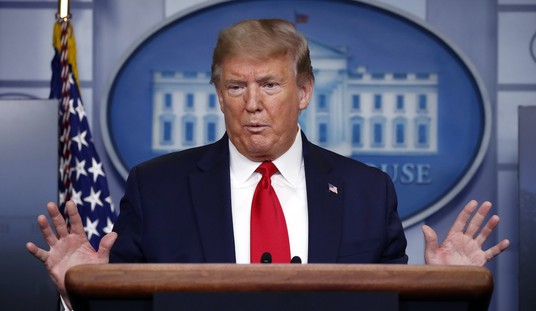A leading Islamic scholar from the largest Muslim country on Earth who leads the world’s largest Muslim organization upbraided Western politicians for refusing to address the connection between Islam and terrorism. In an interview last month, the scholar insisted that the only way to solve the problem is to confront it, and he dared leftists to call him an “Islamophobe.”
“Western politicians should stop pretending that extremism and terrorism have nothing to do with Islam,” Yahya Cholil Staquf, general secretary of the Nahdlatul Ulama (NU), the world’s largest Muslim organization with 50 million members, said in an interview with the Frankfurter Allgemeine Zeitung (translated into English for Time magazine).
Staquf insisted that “there is a clear relationship between fundamentalism, terrorism, and the basic assumptions of Islamic orthodoxy. So long as we lack consensus regarding this matter, we cannot gain victory over fundamentalist violence within Islam.”
The scholar declared, “The West must stop ascribing any and all discussion of these issues to ‘Islamophobia.’ Or do people want to accuse me — an Islamic scholar — of being an Islamophobe too?”
Perhaps he shouldn’t push his luck: The Southern Poverty Law Center (SPLC) has marked devout Muslim Maajid Nawaz an “anti-Muslim extremist.”
Staquf pointed out many “basic assumptions within traditional Islam” that he considers problematic, including: “The relationship between Muslims and non-Muslims, the relationship of Muslims with the state, and Muslims’ relationship to the prevailing legal system wherever they live.”
“Within the classical tradition, the relationship between Muslims and non-Muslims is assumed to be one of segregation and enmity,” the scholar argued. While he admitted that this might have made sense during the Middle Ages, “in today’s world such a doctrine is unreasonable.”
“To the extent that Muslims adhere to this view of Islam, it renders them incapable of living harmoniously and peacefully within the multi-cultural, multi-religious societies of the 21st century,” the Islamic leader added, bluntly.
While Staquf denounced the Islamic State (ISIS), he admitted that its motivational ideas are Islamic and need to be combatted as such.
“Within the Islamic tradition, the state is a single, universal entity that unites all Muslims under the rule of one man who leads them in opposition to, and conflict with, the non-Muslim world,” the scholar explained.
The Islamic State’s “goal of establishing a global caliphate stands squarely within the orthodox Islamic tradition,” Staquf admitted. “But we live in a world of nation-states. Any attempt to create a unified Islamic state in the 21st century can only lead to chaos and violence.”
The scholar also acknowledged that many Muslims “assume there is an established an immutable set of Islamic laws, which are often described as shariah.” While this assumption fits Islamic tradition, “it of course leads to serious conflict with the legal system that exists in secular nation-states.”
The Islamic leader insisted that any “view of Islam positing the traditional norms of Islamic jurisprudence as absolute [should] be rejected out of hand as false,” and that secular state laws should have precedence.
When asked if this indeed is possible, Staquf pointed to his home country of Indonesia as a model. “Generations ago, we achieved a de facto consensus in Indonesia that Islamic teachings must be contextualized to reflect the ever-changing circumstances of time and place,” he explained.
“The majority of Indonesian Muslims were — and I think still are — of the opinion that the various assumptions embedded within Islamic tradition must be viewed within the historical, political and social context of their emergence in the Middle Ages and not as absolute injunctions that must dictate Muslims’ behavior in the present,” the scholar said. Indeed, Indonesia is remarkable for its tolerance of non-Muslims, even while parts of the country do struggle with Islamist violence.
Staquf acknowledged that many in the West are “growing dissatisfied” with Muslim immigration. “In this sense, some Western friends of mine are ‘Islamophobic.’ They’re afraid of Islam. To be honest, I understand their fear,” he said.
“The West cannot force Muslims to adopt a moderate interpretation of Islam. But Western politicians should stop telling us that fundamentalism and violence have nothing to do with traditional Islam,” the scholar declared. “That is simply wrong.”
Staquf argued that he speaks the harsh truths about radical Islam and terrorism in order to promote harmony between Muslims and non-Muslims, and that simply papering over the roots of radical Islamic terrorism by saying that the Islamic State is not Islamic “won’t work.”
“If you refuse to acknowledge the existence of a problem, you can’t begin to solve it,” the scholar said. “One must identify the problem and explicitly state who and what are responsible for it.”
Staquf urged the West to “exert decisive pressure” on the governments of Saudi Arabia and other Gulf states, which have spent millions to promote their “ultra-conservative version of Islam” worldwide over the past half-century.
He also encouraged Western leaders to stand up against violence committed by young immigrants in European cities. “The last time I was in Brussels I witnessed some Arab, perhaps North African, youth insult and harass a group of policemen,” the scholar recalled. “My Belgian friends remarked that such behavior has become almost an everyday occurrence in their country.”
“Why do you allow such behavior? What kind of impression does that make?” Staquf asked. He acknowledged that it is right for Western countries to accept refugees who are in need, but warned that “the fact remains that you’re taking in millions of refugees about whom you know virtually nothing, except that they come from extremely problematic regions of the world.”
While the journalist interviewing the Indonesian scholar pressed on about whether or not he would condemn “a far right wing” that “would reject even a moderate, contextualized Islam,” Staquf did not take the bait.
“There’s an extreme left wing whose adherents reflexively denounce any and all talk about the connections between traditional Islam, fundamentalism and violence as de facto proof of Islamophobia. This must end,” he declared. “A problem that is not acknowledged cannot be solved.”
To Westerners and Middle Eastern Muslims, Indonesia may seem like an alien world: Muslims and Christians live peacefully together, and the national mosque was actually designed by a Christian architect.
That’s right: A Muslim scholar from this country is upbraiding “liberal” politicians for dismissing critiques of radical Islam as “Islamophobic.” This leader of the largest Muslim organization in the world freely admitted the connections between Islamism and terrorism, and encouraged honesty to address these issues.
Alas, it is likely this Muslim voice will be dismissed as “Islamophobic,” if he is heard at all.
Watch Staquf’s message to the Council of the European Union from August.








Join the conversation as a VIP Member